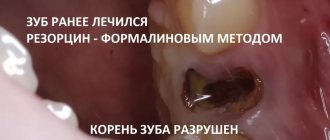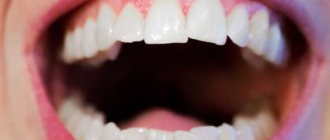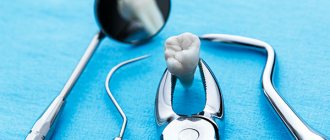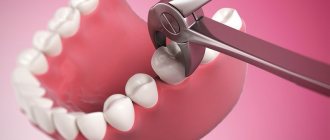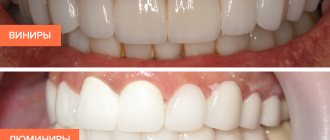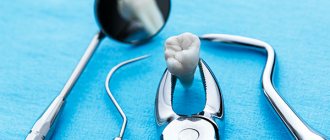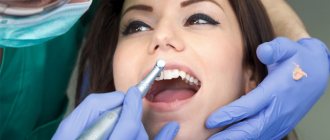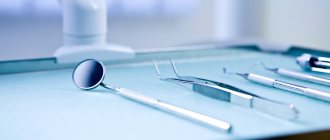At this stage of development of dental science, specialists are increasingly opting for atraumatic tooth extraction. This is the most painless and gentle procedure. After extraction, the bone walls of the socket are kept intact so that dental implantation is possible in the future without bone grafting or sinus lifting.
Tooth extraction is a complex surgical procedure that can result in damage to the bone socket, bleeding, and swelling. Thanks to the latest atraumatic removal technique, which is performed minimally invasively and with comfort for the patient, complications can be avoided. The walls of the tooth socket are preserved after removal, therefore, implantation is possible in the future.
At the innovative dental clinic "Implantmaster" in Moscow, atraumatic tooth extraction is performed by a maxillofacial surgeon. Our doctors improve themselves professionally and attend scientific conferences. Patients can always count on quality treatment. We are able to solve complex problems quickly, setting reasonable prices for services.
Next, you will learn how atraumatic removal is performed and its benefits. Let's get acquainted with the indications for this technique. Let's talk about the differences from regular removal.
Get a consultation
We will answer all your questions before visiting the clinic!
+7
Online registration
Content
1 The difference between atraumatic tooth extraction and conventional
2 Advantages of atraumatic tooth extraction
3 Indications for atraumatic tooth extraction
4 Stages of atraumatic tooth extraction 4.1 Comprehensive diagnostics
4.2 Preparation of membrane from plasma
4.3 Removal with a piezo scalpel and periotome
4.4 Application of blood plasma membrane
5 Disadvantages of piezosurgery for tooth extraction
6 Dental implantation immediately after extraction
7 Prices for atraumatic tooth extraction
What complications can there be?
Serious complications after removal are rare (dislocation, fracture of the lower jaw, damage to adjacent teeth, gum rupture). They can only occur due to unprofessional actions of the surgeon.
In addition, the following conditions are possible:
- Bleeding from the wound. Associated with capillary damage, hemostasis disorders, etc.
- Alveolitis (alveolitis). Often occurs when the doctor’s recommendations are not followed during the recovery period.
- “Dry alveolus” is the absence of a blood clot in the socket.
- Trigeminal neuritis.
- Impaired sensitivity of certain areas of the mouth or head.
Complications are usually accompanied by pain, swelling, hyperthermia, and other symptoms. If they occur, you should consult a doctor.
The difference between atraumatic tooth extraction and conventional
Atraumatic tooth extraction involves extraction without forceps or burs. The ligaments are cut off from the dental unit, then segmentation is carried out using microsurgical blades. Subsequent extraction of fragments is easy. The procedure is performed safely, painlessly and comfortably.
The main advantage of gentle tooth extraction is that the healing of the bone hole proceeds much faster and the relief of the gum tissue is preserved. In the process of extracting fragments, the doctor does not affect the bone structures, maintaining the volume of the jaw bone around the hole. All necessary conditions are created for subsequent stable and complete implantation, and soon aesthetic prosthetics. This procedure makes it possible to immediately load the area with prosthetic structures immediately after tooth extraction.
Advantages of atraumatic tooth extraction
- The risk of infection of the bone socket is minimal due to the absence of trauma to the surrounding soft and hard tissues.
- Low likelihood of bleeding and various complications.
- Tissue regeneration occurs faster than with conventional removal.
- The bone plate between the roots and the physiological structure of the mucous membrane are preserved.
- There is no heating or soft tissue burns.
- The emphasis is on maintaining the original volume of the jawbone.
- The procedure is performed under local anesthesia with gentle drugs to minimize damage to nerve endings.
- Atraumatic tooth extraction with a piezosurgical scalpel produces coagulation of blood vessels, minimizing the risk of bleeding. It has an antiseptic and biostimulating effect.
Anesthesia or why you shouldn’t be afraid of pain
Despite all the achievements of modern medicine, many are still afraid to go to the dentist for fear of pain. But today the most modern technologies and painkillers are used in the field of dentistry. Therefore, going to the dentist becomes a completely painless procedure.
The main component of the anesthetic drug is the anesthetic. In order to enhance the effect of the drug and prolong the duration of anesthesia, a vasoconstrictor is added to the anesthetic drug. The most common vasoconstrictor is adrenaline. To increase the shelf life of anesthesia, preservatives and stabilizers are used. These include sulfites and parabens.
The principle of anesthesia is quite simple. The anesthetic, which is part of the painkiller, blocks the transmission of nerve impulses. Thus, the brain does not receive information from the irritated nerve. Therefore, he does not send back a reaction perceived as pain. When the anesthetic is destroyed, the sensitivity of the nerve endings is restored.
Our team of doctors
Maxillofacial surgeon, Implantologist
Bocharov Maxim Viktorovich
Experience: 11 years
Dental surgeon, Implantologist
Chernov Dmitry Anatolievich
Experience: 29 years
Orthopedist, Neuromuscular dentist
Stepanov Andrey Vasilievich
Experience: 22 years
Endodontist, Therapist
Skalet Yana Alexandrovna
Experience: 22 years
Orthopedic dentist
Tsoi Sergey Konstantinovich
Experience: 19 years
Dentist-orthodontist
Enikeeva Anna Stanislavovna
Experience: 3 years
Modern methods
The Dentpremium Center for Expert Dentistry and Medicine provides the services of a maxillofacial dental surgeon of the highest category, who has extensive experience in performing operations using modern techniques. The use of innovative treatment methods can reduce the risks of complications, speed up the recovery process and achieve a positive result with minimal trauma.
Root apex resection
Performing surgery to save a tooth is a more complex operation than extraction. Modern dentistry prefers a method such as resection of the root apex. As a result of the doctor’s actions, it is possible to remove only part of the tooth root that is susceptible to the pathological process. Thus, the functionality and sensitivity of the organ is preserved.
Root resection
If it is possible to save the tooth if it has several roots. In this case, one of the root processes should not be affected. The affected root is completely resectioned. The remaining roots remain and fully perform supporting and other functions.
Ultrasonic cleaning
Modern methods allow, in case of inflammatory processes in the gums, to clean periodontal pockets without significant trauma. The Dentpremium clinic uses ultrasonic cleaning using open and closed curettage. The purpose of the operation is to restore contact between the enamel and soft tissues of the gums.
Gingivoplasty
Plastic surgery in dentistry also has its place. The Dentpremium center provides surgeon services for gum plastic surgery. Gingivoplasty involves operations to eliminate pathological changes in the soft tissues in the cervical area of the root. The result of the operation is the restoration of the gum structure and its appearance.
Gingivectomy
Gum treatment is also performed using gingivectomy. Surgical intervention is carried out to reduce the existing size of gum pockets and remove excess soft tissue in the periodontal area to relieve inflammation and prevent the spread of the pathological process.
Implantation with delayed loading
The implantation procedure relates primarily to orthodontics, but without a surgeon it is difficult to perform the procedure efficiently. The Dentpremium center uses a modern implantation method with delayed loading, suitable for restoring teeth even in severe cases. High-quality work of the surgeon and orthodontist allows us to achieve results in the form of survival in 98% of patients.
Sinus lift
Lack of bone tissue can be a serious reason why implants are not installed. To eliminate the defect, the dental surgeon performs bone grafting using the sinus lift method. The essence of the operation is to artificially increase (build up) the volume of existing bone tissue.
Indications for atraumatic tooth extraction
- Destruction of the tooth crown of more than 3/4, due to injury or carious process.
- It is not possible to carry out high-quality treatment or restoration of the tooth.
- Severe crowding, lack of space in the dentition, incorrect position.
- Complication of pulpitis or periodontitis.
- Purulent inflammation around the tooth root, cysts that cannot be treated without surgery.
- Creation of space for implant installation.
Stages of atraumatic tooth extraction
The essence of atraumatic extraction is the ultrasonic division of the tooth into the required number of fragments (depending on the number of roots) and their careful extraction. Thus, the integrity of the bone partitions between the roots and the socket walls is maintained, which plays an important role in regenerative processes. The further possibility of implantation and prosthetics depends on this.
Manipulations during atraumatic tooth extraction with ultrasound are similar to standard operations and are carried out by specialists from the Implantmaster clinic at a reasonable price. The only difference is the tools – an ultrasound machine and conventional elevators and forceps. The procedure consists of several stages:
1. Anesthesia.
All surgical interventions are performed under pain relief using local anesthesia. Our doctors perform atraumatic removal of all teeth, even multi-rooted ones.
2. Surgical intervention.
To prevent breakage of the bone septum between the roots, the maxillofacial surgeon and implant surgeon separates them from each other. Using a periotome, the marginal gum is gently moved away from the tooth to preserve its integrity. Next, using an innovative piezo scalpel - the VarioSurg LED ultrasonic surgical system from NSK (made in Japan) - the roots are separated and segmented. Removing fragments becomes safe, painless and as comfortable as possible for the patient.
3. Application of platelet membranes.
After all dental fragments are removed, platelet mass is injected into the socket. The mass contains cell growth factors that help accelerate tissue regeneration and healing. This prepares hard and soft tissues for further prosthetics on implants.
After atraumatic tooth extraction, the hole heals quickly and without complications such as swelling, bruising and bleeding. The most important thing is that the patient must strictly follow all the doctor’s recommendations.
Comprehensive diagnostics
Before performing atraumatic tooth extraction with ultrasound, it is necessary to consult a doctor and carry out a number of diagnostic measures.
1. Initial consultation.
To carry out an innovative dental technique of atraumatic tooth extraction with ultrasound at a reasonable price, the Implantmaster clinic in Moscow has all the necessary latest equipment. Before carrying out medical manipulations, a thorough visual and instrumental examination of the oral cavity is carried out at the consultation. Next, the specialist will order an x-ray.
We perform cone beam computed tomography. The pictures are more accurate, and the Rg radiation is even less. Thanks to this, the most accurate diagnosis can be made.
Our doctors use a Labomed Magna dental microscope to thoroughly examine the condition of teeth and surrounding tissues.
2. Analyzes.
An examination is carried out to determine contraindications to surgery. The specialist, using diagnostic data, identifies the possibilities of saving the tooth. And if this is not possible, then a plan for the operation is drawn up.
The doctor answers all the patient’s questions. He explains in detail the surgical procedure and schedules an appointment.
Immediately after ultrasound exposure, it can be implanted. Our highly qualified specialists use the latest materials and technologies, such as Straumann implants. Their osseointegration takes place in 3-5 weeks, and they can also be installed when the bone level is small.
Removal of impacted teeth
Technically complex surgical operations include the removal of impacted teeth, which can be completely or partially covered by a crown, bone tissue or gum. Limited access to the diseased tooth determines the complexity of the operation and the need for anesthesia.
At the InWhite Medical clinic, impacted teeth are removed by specialists with many years of experience. All manipulations are carried out in one session. But in some, especially difficult cases, the operation to remove a problematic tooth can take several hours.
Get a consultation
We will answer all your questions before visiting the clinic!
+7
Online registration
Preparation of plasma membrane
The membrane is made in the morning or 4 hours after eating (water can be drunk, even necessary). The procedure takes about half an hour.
- In the treatment room, blood is taken from a vein in the patient's elbow.
- The biomaterial is placed in a specialized apparatus, where it is centrifuged to separate the plasma.
- In laboratory conditions, doctors obtain the necessary plasma and saturate it with anticoagulants.
The procedure is quite quick and painless. To minimize risks, you should carefully approach the search for a good clinic and an experienced doctor. Implantmaster employs highly qualified specialists who regularly improve their skills and knowledge.
Removal using a piezo scalpel with a periotome
At the Implantmaster clinic, all surgical interventions are performed using anesthesia. Our specialists perform atraumatic removal of any teeth using ultrasound.
The dentist-surgeon, first of all, uses a periotome to separate the adjacent gum from the tooth on all sides. To preserve the bone septum between the roots, the doctor separates the roots from each other. An innovative piezo scalpel - the VarioSurg LED ultrasonic surgical system - separates the roots from the coronal part and their subsequent segmentation. Removal is as safe and painless as possible. Even the most difficult operations are carried out without further complications.
Application of blood plasma membrane
The use of platelet membranes containing cell growth factors accelerates tissue regeneration and healing. During surgery, the membrane covers the defect, implanted bone material or artificial root. Sometimes a fibrin clot is combined with the patient's bone material and introduced into the defect area. Afterwards, suture material is applied. If the membrane was installed to prevent inflammation, then sutures are not applied. It is not advisable to rinse your mouth during the first 3 days.
The introduction of a platelet membrane naturally activates cellular growth factors of the jaw bone and periodontal tissues, increasing the rate of recovery. Regeneration and acceptance of implants or bone material by the body is much faster, and the likelihood of inflammation is significantly minimized.
Blood plasma membranes have a positive effect on:
- increase in the rate of cellular growth factor in the bone after implantation;
- absence of allergies that could occur when interacting with foreign materials;
- accelerated gum recovery after implantation or plastic surgery;
- prevention of inflammation around the implant;
- reduction of swelling and pain after surgical procedures;
- optimal tightening of the socket after tooth extraction;
- minimizing inflammation during gingival curettage and cleaning periodontal pockets.
How is removal carried out?
It is customary to distinguish two methods of tooth extraction:
- Simple - used if the crown of the tooth is well preserved and it is possible to pick it up with forceps, loosen the tooth and remove it. We extremely rarely resort to such a “time-tested” method due to its traumatic nature. When removing a tooth with a developed root system or structural features (for example, a curved tooth root), it is extremely difficult to ensure the safety of surrounding tissues.
- Surgical - used when there is no direct access to the tooth. With the help of surgery, the doctor gets it. We use this method most often, including in difficult cases, for example, if a tooth (including a wisdom tooth) has not fully erupted or its crown is fragile or broken. A set of high-precision instruments allows you to work exclusively with the tissues of the tooth being removed, avoiding even pressure on neighboring teeth and surrounding tissues.
Before removal, the doctor treats the surgical field with an antiseptic and administers anesthesia. The patient feels only physical pressure, but there is a complete absence of pain and discomfort. After removal, a set of measures is carried out to clean the hole and create conditions for speedy healing.
If the dentist, after reviewing the pictures and visual examination, referred you to a surgeon for removal, then first a diagnosis and history taking is carried out:
- Allergic reactions to drugs are clarified.
- Doubt and fear before the operation are eliminated (the specialist reassures the client).
- The oral cavity is cleaned with antibacterial agents.
Most dental clinics use the classic method:
- Local anesthesia is performed.
- The gum peels off from the tooth.
- The forceps are fixed and moved under the gum.
- The tooth is loosened to damage the ligaments that firmly fix it in the socket.
- After mechanical damage, the tooth is removed.
- A gauze swab containing blood-stopping drugs is pressed tightly.
- Instructions are provided for competent behavior in the postoperative period and painkillers are prescribed.
- If the damage is too severe due to complications, sutures are applied during surgery.
If the tooth is too complex, and it is broken into several parts, and local anesthesia does not lead to proper pain relief, then specialists use general anesthesia. During the operation, a drill is used to cut out the bone. Often the tooth is broken into small parts using a chisel and hammer (divided into 3-4 parts).
The use of ultrasound technology has begun in recent years. The method is popular because it reduces trauma compared to the use of forceps, chisels, hammers and other tools. The speed of ultrasonic removal is higher, and the level of trauma is lower. Experts use an ultrasonic scalpel to separate the ligaments that attach the tooth. This allows for a smooth removal process and provides the following benefits:
- High speed.
- No bleeding.
- Protection from pathogenic microbes.
- Possibility of removing semi-impacted, dystopic, resorcinol-formalin, impacted teeth.
- If necessary, quick installation of the implant immediately after surgery (the hole is prepared for fixation of the implant).
Disadvantages of piezosurgery for tooth extraction
1. The cost of atraumatic tooth extraction can be considered a disadvantage. It is slightly higher than with classical extraction. The cost is made up of professional training, training of a dental surgeon and the use of innovative, expensive equipment. In practice, the safety and reliability of the procedure compensate for the price component.
2. Limited prevalence of the technique. Not all clinics have the necessary equipment and staff training, especially clinics.
Indications and contraindications
Atraumatic tooth extraction is indicated in the following situations:
- severe damage to the coronal part due to infection or injury;
- the presence of purulent inflammations in or around the tooth and the inability to eliminate them without freeing the hole;
- preparation for orthodontic treatment in case of crowded teeth;
- freeing up space in the oral cavity to install a complete removable denture.
Most often, the method of atraumatic tooth extraction is resorted to when it is planned to restore it through express implantation. During this procedure, it is very important that both soft and bone tissue remain in normal condition, as this affects the rate of implant healing.
Atraumatic tooth extraction is safer than the classical method - such an operation can even be performed on patients with chronic infectious diseases, as well as problems with blood clotting.
And yet, it is better to postpone the procedure if there is a respiratory tract infection and diseases of the internal organs in the acute phase. It is also better to avoid surgery during the first and third trimesters of pregnancy. The most suitable time for atraumatic tooth extraction and other dental procedures is the second trimester.
Dental implantation immediately after extraction
The single-stage implantation operation involves installing an artificial root directly into the socket of the extracted tooth. All manipulations can be performed in one visit. This procedure is most in demand when prosthetics are needed in the smile area. The primary goal is to achieve high aesthetics of restorations.
With the help of one-stage implantation, it is possible to significantly reduce the rehabilitation period. It is also possible to fix a temporary prosthesis, allowing the patient to immediately begin the process of chewing food.
Our highly qualified specialists use Straumann and Osstem implants. Healing of Straumann implants occurs within a month, and even a small level of bone will not interfere with installation.
What is the removal procedure like?
Before planned removal, the patient must undergo preparation for the event:
- Clinical and x-ray examination (clarification of the diagnosis, resolving the issue of the need for extraction, studying the structure of the segment).
- Clinical and laboratory examination.
- Consultation with narrow specialists in the presence of somatic pathologies (in the clinic at the place of residence).
- Sanitation of carious cavities.
- Removal of supragingival and subgingival dental plaque.
Prices for atraumatic tooth extraction
Tooth extraction is simple:
- X-ray images
- Anesthesia
- Removal of a tooth
- Applying and removing sutures
- Postoperative examinations
Price : from 3,000 ₽ to 7,800 ₽
Tooth extraction is complicated
| from 10,000 to 20,00 ₽ |

